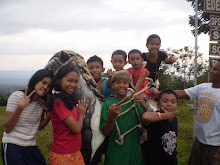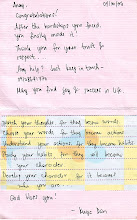
philo2; Reflection: Paper 2
The piece of writing talked about the relationship of organisms and environment --- ecology. As good stewards of God and as a rational being, we are responsible to take good care of our nature. We can also relate it about what St. Francis of Assisi uttered had; I had read about his life, I can say that he is a lover of all creation. Because when Francis was carried back to Assisi, where his remaining years were marked by physical pain and almost total blindness, his sufferings evidently did nothing to diminish his love of God and Creation, as exhibited in his “Canticle of the Creatures”, supposed to have been composed at Assisi in 1225, in which the Sun and the rest of nature are praised as brothers and sisters, and the often portray incident in which he preached to the sparrows. He was canonized in 1228. In 1980, Pope John Paul II proclaimed him the patron saint of ecologists. In art, the emblems of St. Francis are the wolf, the lamb, the fish, birds, and the stigmata. His feast day is October 4. Because of this, he respected and cared for all living things. He lived in a perfect harmonious with nature. I hope someday people think the way he thinks to prevent ecological problem. Ecological problem rises because of our negligence; we do not know how to take good care of our Mother Nature. One of these problems is clearly seen by now, it is the population explosion. “As the number of people increases, the quantity of supply decreases if and only if, no one minds to replace it”. Rapid population growth is a serious problem in as much as the earth and its resources are limited. And the following also are the major problems; issues illustrating the lack of environmental implementation: 1.) Mining industries and the contamination caused by mine tailings; 2.) Air pollution in urban areas, especially in overpopulated like Metro Manila; 3.) Water pollution, especially in overpopulated coastal areas like Manila Bay; 4.) Marine and coastal zone resource depletion - e.g. mangrove swamps, fisheries; 5.) Land use conflicts, affecting indigenous peoples and local communities. I had read in the article that plotting a corrective course for a country with such severe social and environmental problems as the Philippines is an enormous challenge. The damage has been enormous, and the extent of change required to turn the system from one of approaching disaster to one of long-term stability is intimidating. However, many aspects of the decline that began long ago have been reversed or at least slowed. One of the greatest problems for decades was a scarcity of accurate and current information on wildlife, forests, and the environment in our country. This is changing rapidly; newspapers now avidly cover stories about floods, droughts, deforestation, and highlight corrupt practices that come to light. Information is gradually making its way into grade school and high school curricula, and books about nature and wild animals and plants are being published increasingly frequently; Mother Nature is one of the most precious God’s gifts unto us. We need to take care of it because “nature can live without man, but man cannot live without nature. We can spend our life in anyway we like but we should also remember that we can only spend it once. We should not take for granted all the blessings that we have. We need to treasure it as we could not feel this again in our entire life. Hence we cannot paint happenings to come, we don’t know in the near future with just one click all of these will nowhere to be found. All of our life we are too dependent in our nature. We are clued-up that our major needs came from it; shoes and slippers we used, dresses we worn, and there’s a lot, and primarily air to breath, water to drink and food to eat. We need nature but we are the one who obliterate. Do you still care for our tomorrow? If you are going to ask me, yes I am! I care for our tomorrow. As a student nurse my intervention of this is to educate people. I would like them to know what are the consequences of not taking good care of our nature and what the advantages are. I bring to a close my reflection by saying “the key to success begins in our self”. We will change our self first before we change the whole wild world.







































No comments:
Post a Comment